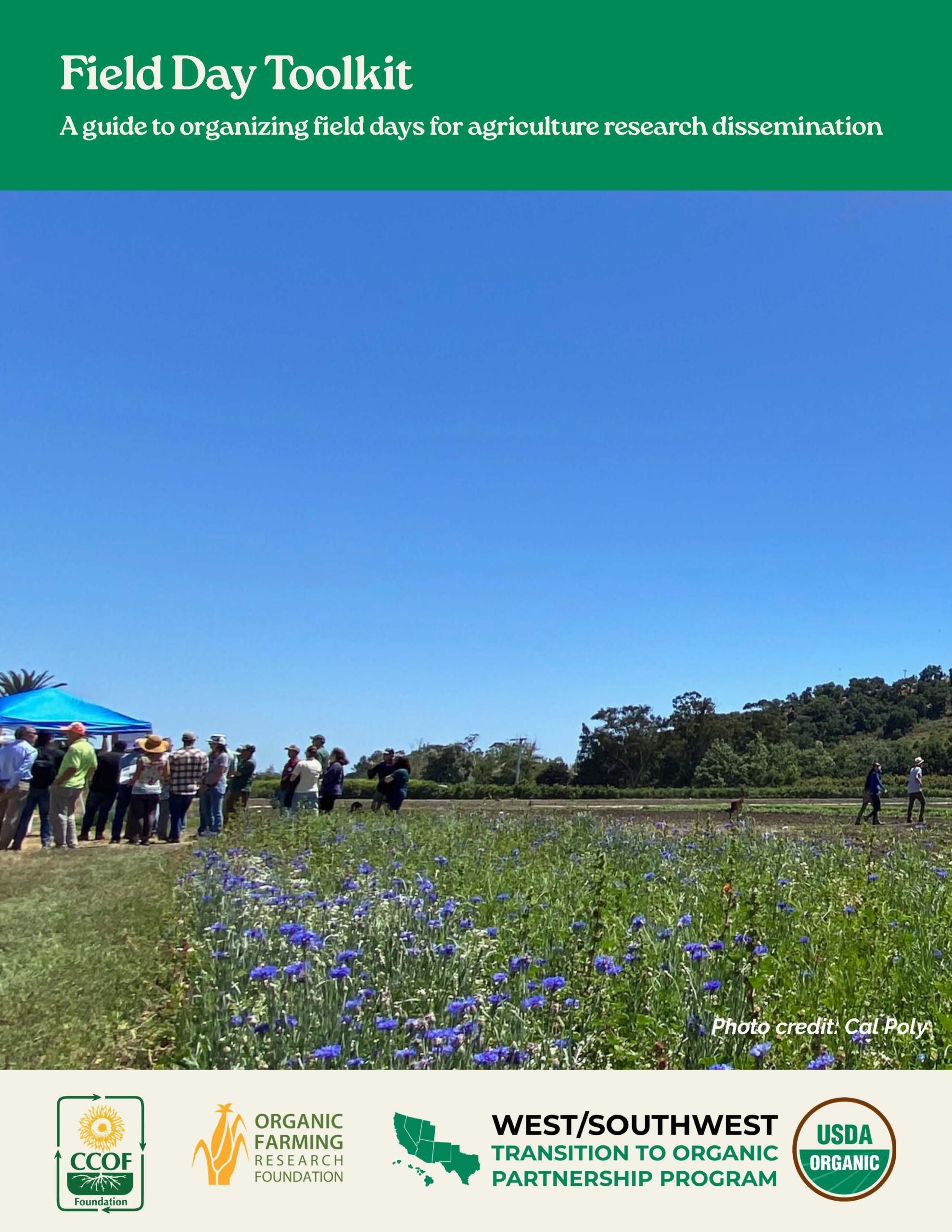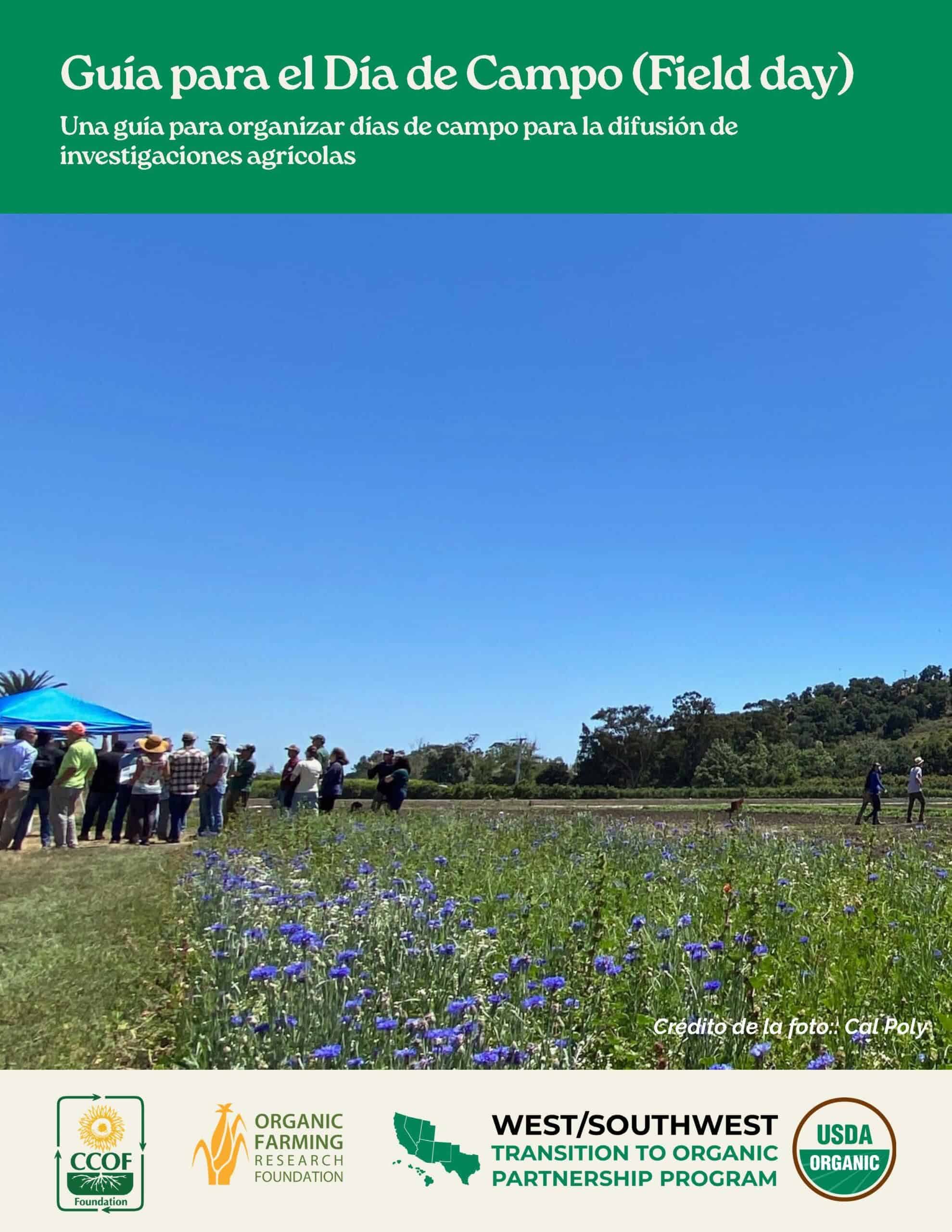By Gordon Merrick, Senior Policy & Programs Manager at OFRF
Field days have been a longstanding tool in the agriculture community, both to disseminate research being done at Agricultural Experiment Stations and Land Grant Universities, but also communities and non-governmental organizations. These events provide a unique space for farmers, researchers, and agricultural professionals to come together to share insights, learn from one another, and foster future collaborations. At OFRF, we know that hosting a field day can feel like a daunting task, especially if it is your first go around! That’s why we are thrilled to announce the release of a new resource to guide you through the process of planning and hosting a field day, and it’s available in both English and Spanish!
Why Host a Field Day?
Field days are about a lot more than just showcasing research findings or demonstrating a new technique or technology. They are opportunities to create meaningful connections within the larger agricultural community. We know, through our NORA-22 report, that farmers are each other’s greatest source of knowledge, and in-person events like these can amplify the exchange of ideas and information tremendously. Additionally, they offer researchers and other professionals a chance to ground their work in the realities of farming, ensuring that their research continues to be relevant, practical, and impactful.
Hosting a field day on your own farm can have some additional co-benefits too, like having a group of experts look at your operation and discuss opportunities to improve it through implementing the latest research findings with USDA programs that provide detailed technical and financial assistance.
Making Field Days Easier: OFRF’s New Toolkit!
To make harnessing these benefits as easy as possible, we’ve developed a comprehensive Field Day Toolkit that provides a roadmap and customizable materials to plan, host, and follow up on a successful event. This guide includes practical tips, checklists, and resources to streamline the process, and maximize the impact of your field day! Whether you’re new to hosting events, or looking to refine your approach, the toolkit covers every phase of organizing one.
Highlights of the toolkit include:
- Step-by-Step Guidance: A detailed roadmap to plan, execute, and evaluate a successful field day.
- Audience Engagement Tips: Best practices for creating interactive, farmer-focused events that maximize learning and participation.
- Logistics Planning: Checklists for equipment, scheduling, and accessibility to ensure a seamless experience.
- Outreach Strategies: Ideas to promote your event and attract attendees from diverse backgrounds.
This resource is also available in Spanish, ensuring that more communities have access to tools that help build knowledge and collaboration.
We at OFRF know that agriculture thrives when we can effectively and efficiently share knowledge with one another. As the challenges facing organic and non-organic producers continue to grow, the exchange of ideas and practices through events like field days are even more valuable. This toolkit helps make these events accessible, inclusive, and impactful; ultimately leading to a stronger foundation for the agricultural community and economy.
Start Planning Your Field Day Now!
Hosting a field day doesn’t have to be overwhelming. With the right tools and a clear plan, you can create and implement an event that inspires action, builds relationships, fosters growth, and can even better your operation! Download our Field Day Toolkit today and take the first step toward bringing your community together.
Together we can continue to grow, learn, and collaborate to create a sustainable future for American agriculture, one field day at a time.




